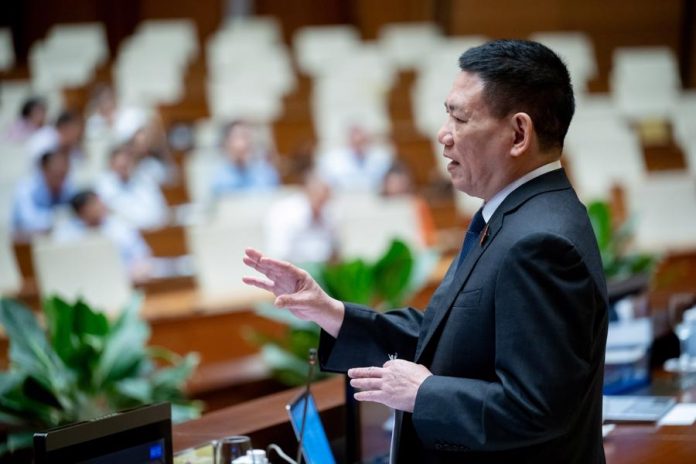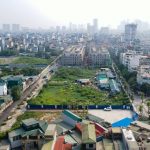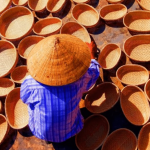On June 24, Minister of Finance Ho Duc Phoc clarified some issues raised by National Assembly delegates during the discussion on the draft Law on Value Added Tax (VAT) Amendment in the Assembly hall. The Minister stated that VAT has a very broad scope and applies to almost all types of goods and services. Therefore, this is a complex law that affects the interests of many producers and traders.
Accordingly, amendments to the draft law must ensure the development of production and trade and strictly adhere to the approved tax strategy. In this regard, the drafting committee has conducted thorough research and assessed the impact of each issue related to VAT policies to encompass all sources of revenue, expand the tax base, and align with international practices.
CONFLICTING POLICY IMPLICATIONS OF APPLYING A 5% VAT RATE
The Minister further added that according to the strategy, by 2030, the state budget must mobilize 16-17% of GDP, including 14-15% from taxes and fees, with domestic revenue accounting for 86-87%. Taking into consideration the opinions of the National Assembly delegates, the drafting committee will carefully review and assess the impact of each policy package and the issues still under debate to ensure unity when the law is passed at the next session.
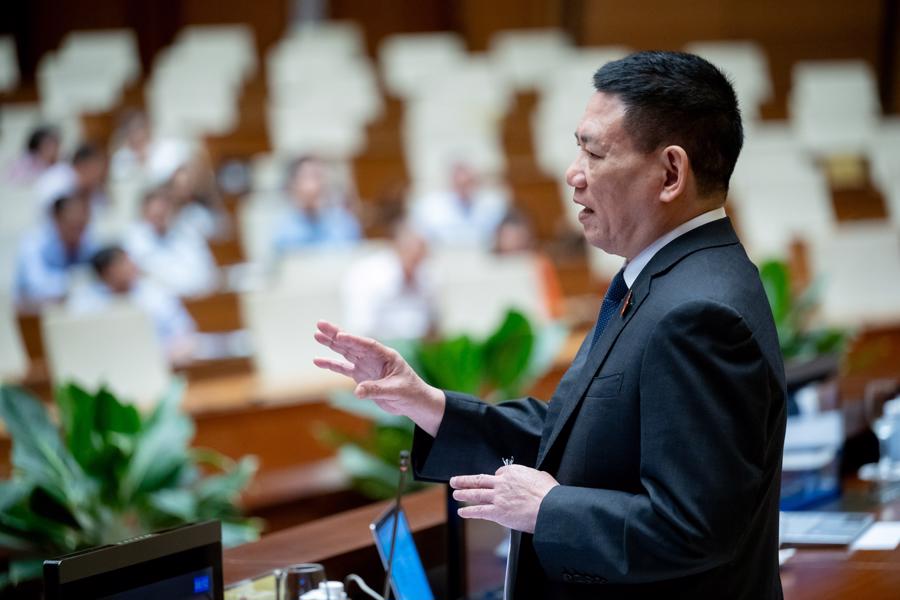
Regarding fertilizers, the Minister stated that there are differing viewpoints, with some suggesting that fertilizers should be exempt from VAT, while others propose a 5% tax rate.
Previously, fertilizers were subject to VAT, but the National Assembly removed them from the list. Now, with the proposal to reintroduce VAT on fertilizers, the drafting committee will have to reassess the impact and present it to the National Assembly at the end of this year.
“Domestic fertilizer production accounts for 73.3%, while imports make up the remaining 26.7%, equivalent to 4 million tons per year. Including fertilizers in the 5% VAT category will help domestic enterprises remain competitive with importers and benefit from tax refunds, enabling them to invest in technology upgrades, reduce production costs, and promote sustainable development.”
Minister of Finance Ho Duc Phoc
Regarding the tax refund amount, the Minister clarified that based on the impact assessment on fertilizer prices and their effect on farmers, each farming household would only have to pay an additional VND 461,000 per year, equivalent to VND 38,000 per month.
Moreover, fertilizer prices are influenced by market supply and demand dynamics, not solely by taxes. When supply increases, fertilizer prices tend to decrease, and vice versa.
Earlier, during the discussion session, the topic of a 0%, 5%, or exempt VAT rate for fertilizers sparked heated debates among the National Assembly delegates, attracting significant attention and discussion.
Delegate Tran Anh Tuan from Ho Chi Minh City commended the drafting committee for their meticulous work in amending and supplementing numerous provisions in line with the national tax reform roadmap.
However, he suggested reconsidering the inclusion of certain groups as VAT-liable entities as proposed in the draft law.
According to Delegate Tran Anh Tuan, we are currently implementing Resolution No. 43/2022/QH15 of the National Assembly on fiscal and monetary policies to support the socio-economic recovery and development program. In other words, we are pursuing an expansionary fiscal policy by continuing to reduce taxes (by 2%) until the end of 2024. Simultaneously, we will implement measures to stimulate consumption and production until the end of 2025 to maintain economic growth momentum.
Mr. Tuan analyzed that amending the law to increase the VAT rate to 5% for certain production inputs would reduce the competitiveness of enterprises producing these goods, exert inflationary pressure on consumer goods, and ultimately affect the livelihoods of the people.
“Designing these two policies may create policy conflicts when implementing an expansionary fiscal policy while introducing new taxable entities, undermining the effectiveness of our current fiscal approach,” Mr. Tuan expressed his concern.
Therefore, Delegate Tran Anh Tuan suggested designing policies with a clear roadmap, especially for agricultural products, by recalculating tax policies. He proposed considering a 0% VAT rate instead of the 5% proposed in the draft law to enable enterprises to deduct taxes. This would prevent increases in the prices of food and consumer goods while effectively implementing an expansionary fiscal policy.
Additionally, the Ho Chi Minh City National Assembly delegate pointed out that the draft law lacks a clear implementation roadmap. He emphasized the need to continue expansionary fiscal policies until the end of 2025, as there is still much room for maneuver.
Hence, he recommended designing policies that empower the Government to include taxable entities in line with the tax reform roadmap while allowing for flexibility in implementation to align with practical conditions.
PROPOSAL FOR A 0% VAT RATE TO REDUCE INPUT COSTS
Sharing a similar viewpoint, Delegate To Ai Vang from Soc Trang Province provided feedback on Clause 2, Article 9 of the draft law, which stipulates a 5% tax rate for 12 groups of goods and services, including fertilizers.
“Through the Soc Trang Province National Assembly delegation’s contacts with voters, we have received thoughts, aspirations, and suggestions from the people regarding the investment costs for each cultivation period, including fertilizer prices, pesticide prices, fuel prices, labor costs, and transportation costs, which have increased severalfold. The long-standing contradiction between agricultural produce prices and fertilizer prices has been a pressing issue in Vietnamese agriculture,” Ms. Vang expressed.
Therefore, the delegate proposed that the National Assembly consider amending the Value Added Tax Law to apply a 0% VAT rate to fertilizers. If the law maintains a 5% VAT rate for fertilizers, farmers will have to bear an additional cost of VND 6 trillion.
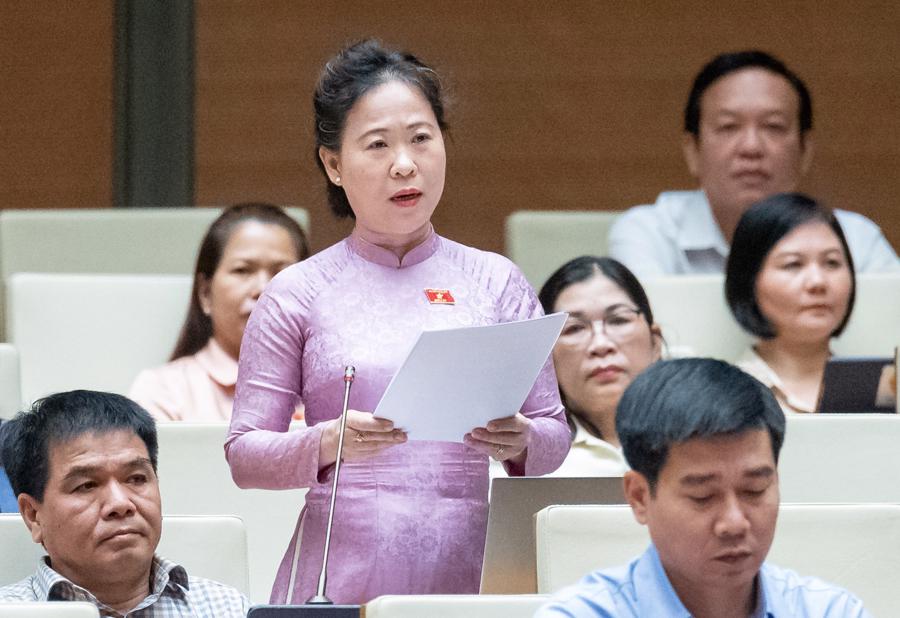
“If the draft law maintains a 5% VAT rate for fertilizers, it will increase the burden on farmers, especially in the context of the agriculture sector facing numerous challenges,” Ms. Vang worried.
On the other hand, if the law applies a 0% VAT rate to fertilizers, approximately VND 2 trillion will be redirected from the state budget to support enterprises and farmers. Consequently, farmers will benefit from significantly reduced input costs.
According to Ms. To Ai Vang, the National Assembly and the Government should prioritize the interests of farmers by concretizing supportive policies in the law.
TAXATION TO AVOID HARMING THE PEOPLE
Engaging in the discussion, Delegate Nguyen Duy Thanh from Ca Mau Province stated that including fertilizers as VAT-liable goods is entirely appropriate. This change will enable enterprises to deduct input VAT, ensuring fairness between domestic and imported fertilizers. As a result, enterprises can lower prices for farmers, and state budget revenue will increase.
The delegate also pointed out that most countries worldwide, including Russia, China, and Thailand, levy taxes on fertilizers.
Speaking at the Assembly hall, Delegate Trinh Xuan An from Dong Nai Province emphasized that this draft law is crucial as it pertains to 25% of state budget revenue and affects all entities. Therefore, it requires a neutral and objective tax policy to build a robust financial foundation.
Delegate An recognized that the Government’s proposal to apply a 5% VAT rate to fertilizers and agricultural products is reasonable. Simultaneously, he advised evaluating policies from multiple perspectives, maintaining a calm demeanor, and conducting a thorough analysis, as millions of people are closely watching and evaluating the National Assembly and the Government’s policy-making process.
Delegate Trinh Xuan An also inquired whether the recent increase in fertilizer prices resulted from higher taxes. He noted that fertilizer prices are influenced by various factors, such as input costs and materials. Therefore, a thorough assessment is necessary before increasing the VAT rate to 5%, as it may affect selling prices.
“If enterprises can deduct this 5% VAT, they can reinvest in expansion. When domestic fertilizer prices become competitive with import prices, farmers will benefit without suffering price increases,” Delegate An elaborated.
Furthermore, to support the people and enterprises, multiple alternative approaches and policies should be considered, as suggested by Delegate Trinh Xuan An.
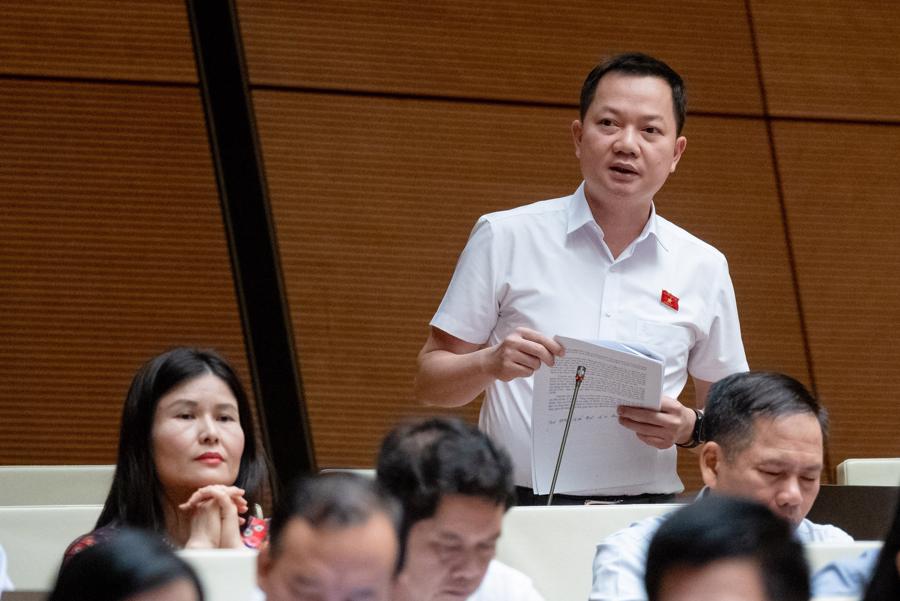
However, the delegate disagreed with the suggestion to deduct or apply a 0% VAT rate, as this rate is exclusively for exports. He emphasized the need to find a suitable solution without deviating from global principles.
“The Government should establish criteria to clearly define which goods are tax-exempt, subject to 0% VAT, or 10% VAT. Even National Assembly delegates are unclear about the criteria for tax application,” stated Delegate Trinh Xuan An.
The most extensive bribery case ever in Thanh Hoa: Numerous suspects prosecuted for “Giving and Receiving Bribes”
The Provincial Security Investigation Agency (PSIA) of Thanh Hoa province announced on January 31st that it has made the decision to initiate a prosecution against 23 individuals in connection with the offenses of “Accepting bribes” and “Giving bribes” as stipulated in Article 354(3) and Article 364(2) of the Criminal Code.
Accelerating disbursement of the 120 trillion VND credit package for social housing
Deputy Prime Minister Trần Hồng Hà has recently issued directives regarding the implementation of the 120,000 billion VND credit package for investors and buyers of social housing, workers’ housing, and projects for the renovation and construction of apartment buildings.
Vietnam’s Irresistible ‘Specialty’ That China Desperately Wants to Revive: Highly Popular from the US to Asia, Bringing in Millions of Dollars
Vietnam is one of the largest exporting countries in the world, along with China and the Philippines.


























